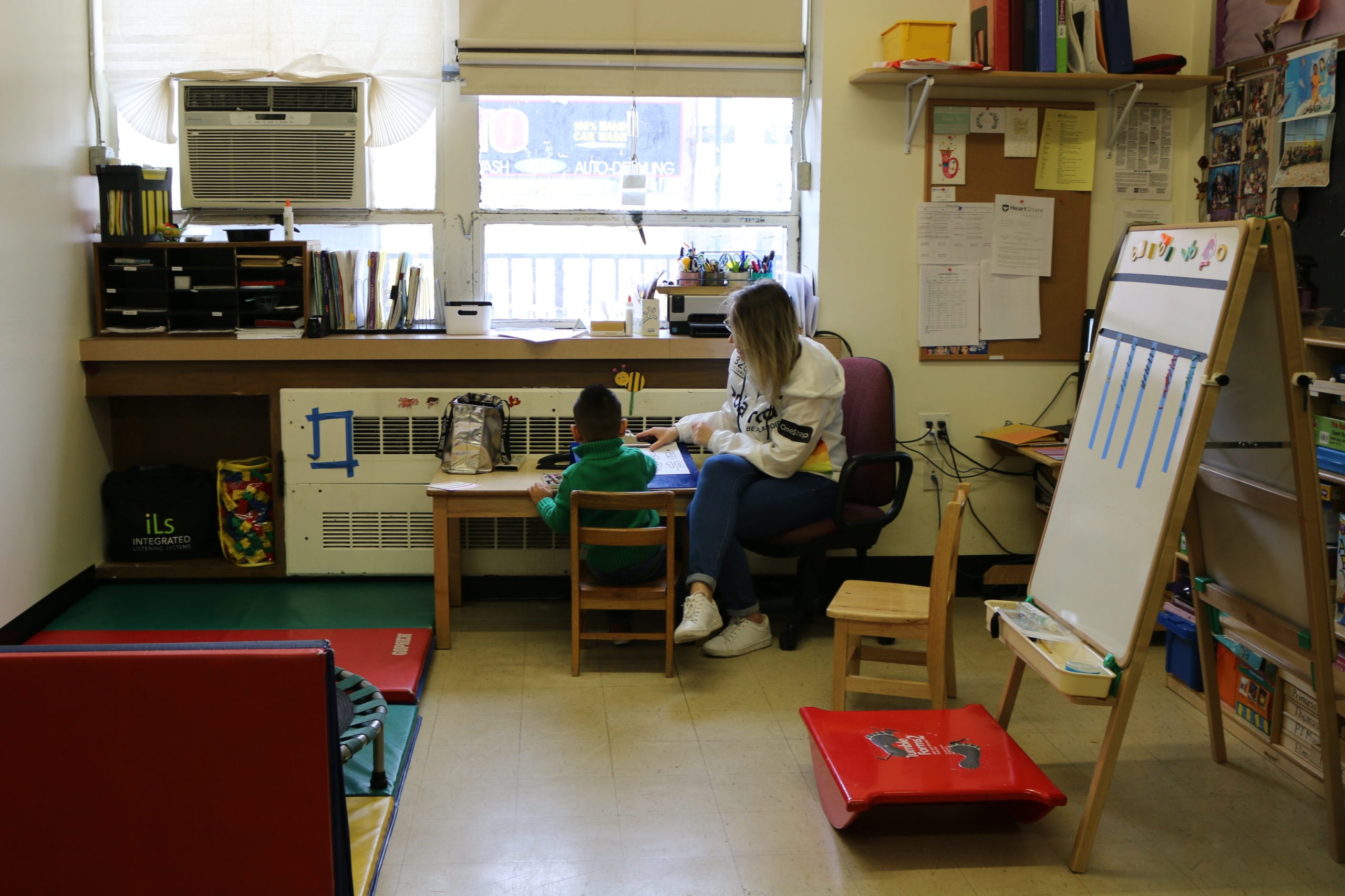Sign up for Chalkbeat New York’s free daily newsletter to keep up with NYC’s public schools.
Early childhood workers across New York City will see their wages rise under a tentative agreement reached Wednesday between the city and organizations representing preschool employees and providers.
The agreement comes after an extended push for higher wages in the city’s early childhood system, which has at times struggled to retain staffers amid persistent pay disparities between teachers who work in community-run preschools and those in public school classrooms.
Though community-based organizations operate preschools that enroll the bulk of students in the city’s free, universal pre-K program for 4-year-olds and its program for 3-year-olds, teachers and support staff employed at these centers often earn less than their Education Department counterparts. In recent years, City Council leaders and early childhood advocates have called on Mayor Eric Adams to establish higher pay for workers in community-run programs.
The city negotiated the contract with DC 37, which represents thousands of early childhood workers, and the Day Care Council of New York, which represents providers.
The tentative agreement provides compounded wage increases of 16.21% over five years, with retroactive annual increases of 3% dating back to October 2022, according to City Hall officials. It also sets a minimum wage of $18 per hour and provides a $2,000 ratification bonus to early childhood workers.
Child care workers in community programs often work 12 months a year and for longer days than their public school counterparts. Under the agreement, child care workers in Extended Day and Year Programs will also see additional payments each summer, and longevity-based payments are set to resume, according to city officials.
Tara Gardner, executive director of the Day Care Council, called the contract “a step forward on the path to parity.”
“The reinstatement of longevity increases, the introduction of a summer differential for teachers and staff in 12-month Extended Day and Extended Year programs, and the funding of overdue base salary adjustments are critical steps in acknowledging the importance and impact of this workforce,” she said in a statement. “We look forward to ongoing collaboration with Mayor Adams and our partners in organized labor to strengthen the early childhood system and ensure that this workforce receives the recognition, compensation, and benefits they have long deserved.”
The city previously boosted teacher pay in community-based programs in 2019, though that agreement didn’t secure pay for teachers according to their years of experience. That meant that over a 25 year career, a child care teacher could lose out on roughly $700,000 by remaining at a community-based provider instead of moving to a public school with longevity bonuses, according to a report from the 5BORO Institute, which was compiled prior to the contract agreement.
In a statement, schools Chancellor Melissa Aviles-Ramos called early childhood workers “a cornerstone of our school system.”
“The foundational work that they do sets the tone for our youngest children to develop a lifelong love of learning,” she said. “These are the bright starts that give way to bold futures, and we are pleased to see DC37 and DCCNY reach a fairer agreement for all.”
Julian Shen-Berro is a reporter covering New York City. Contact him at jshen-berro@chalkbeat.org.







